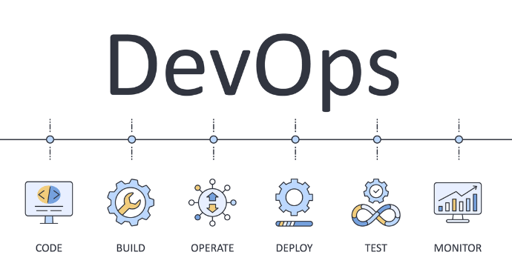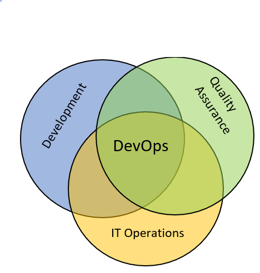DevOps and the Software Development Lifecyce

The Software Development Lifecycle (SDLC) is considered to be the oldest methodology framework for building information systems. The main idea behind the SDLC is to develop information systems in a very deliberate, structured and methodical way which requires formal steps for each stage of the of the software development life cycle.
DevOps is an iterative methodology similar to Agile; methodologies rapidly test your assumptions with the idea that you fail early and fail fast. The DevOps culture creates a continuous improvement environment to automate everything, bringing value to customers as soon as possible. DevOps is not a silver bullet, and will not make your problems go away. What DevOps will do is to help optimize your IT organization’s process for the software development for each step of the SDLC. It is a set of practices that are dedicated to building, delivering, and operating systems that are closely aligned with business objectives.
One key concept in DevOps is to ensure that DEV (development) and OPS (operations) teams work together throughout the entire life cycle of a product's development.
Some the key practices include prolific communication and collaboration of participants in SDLC.
DevOps creates a feedback loop for building, testing, and speeding up the software delivery process.
There are many parts to DevOps and no tool will do everything. DevOps is broken down into: Planing, Coding, Building, Testing, Release, Deploy, Operate, Monitor.
Where can Razor help?
Razor’s integrated tools fit into the DEV side of DevOps for
- Issue Tracking
- Version Control
- Release Management
To support a DevOps environment, you need a team who can collaborate and coordinate together.
Some of the DevOps benefits Razor delivers include:
Faster Software Delivery at Scale
Increased Software Quality
Repeatable Process
Better Communication
Supports Native Languages like python, bash, or you favorite scripting language.
Razor will allow you to make the most of version control, allowing you to ensure that every change to your software build is successful. Version control will allow you to track any changes and revert back to earlier versions as needed. Razor will ensure the build process is consistent throughout the SDLC.
For yout development team, Razor will ensure a process is in place for code commits. For example, you’ll be able to build unique binary artifacts and reuse them throughout the SDLC pipeline. You’ll have the flexibility to organize multiple versions simultaneously between disparate teams, and Razor will ensure that no inconsistencies will be built into your software releases.
How do you get started with DevOps?
What tools do you need?
How do successfully bring together the right tools together?
And how do you bring all the right technologies together successfully?
What will DevOps deliver?

